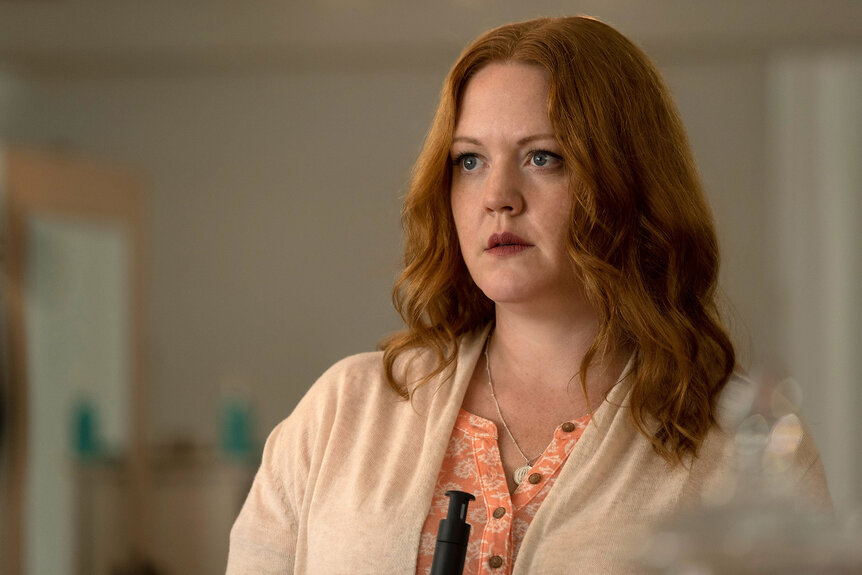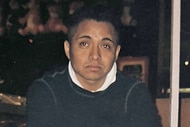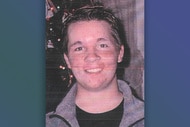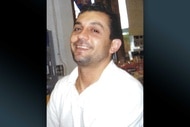Create a free profile to get unlimited access to exclusive videos, breaking news, sweepstakes, and more!
What Happened To The 3 Real Life Figures At The Center Of 'Circle Of Deception?'
The story of a 2003 murder on Whidbey Island was the inspiration for veteran true-crime writer Ann Rule’s bestselling 2013 thriller, “Practice to Deceive,” and now the Lifetime movie, “Circle of Deception.”
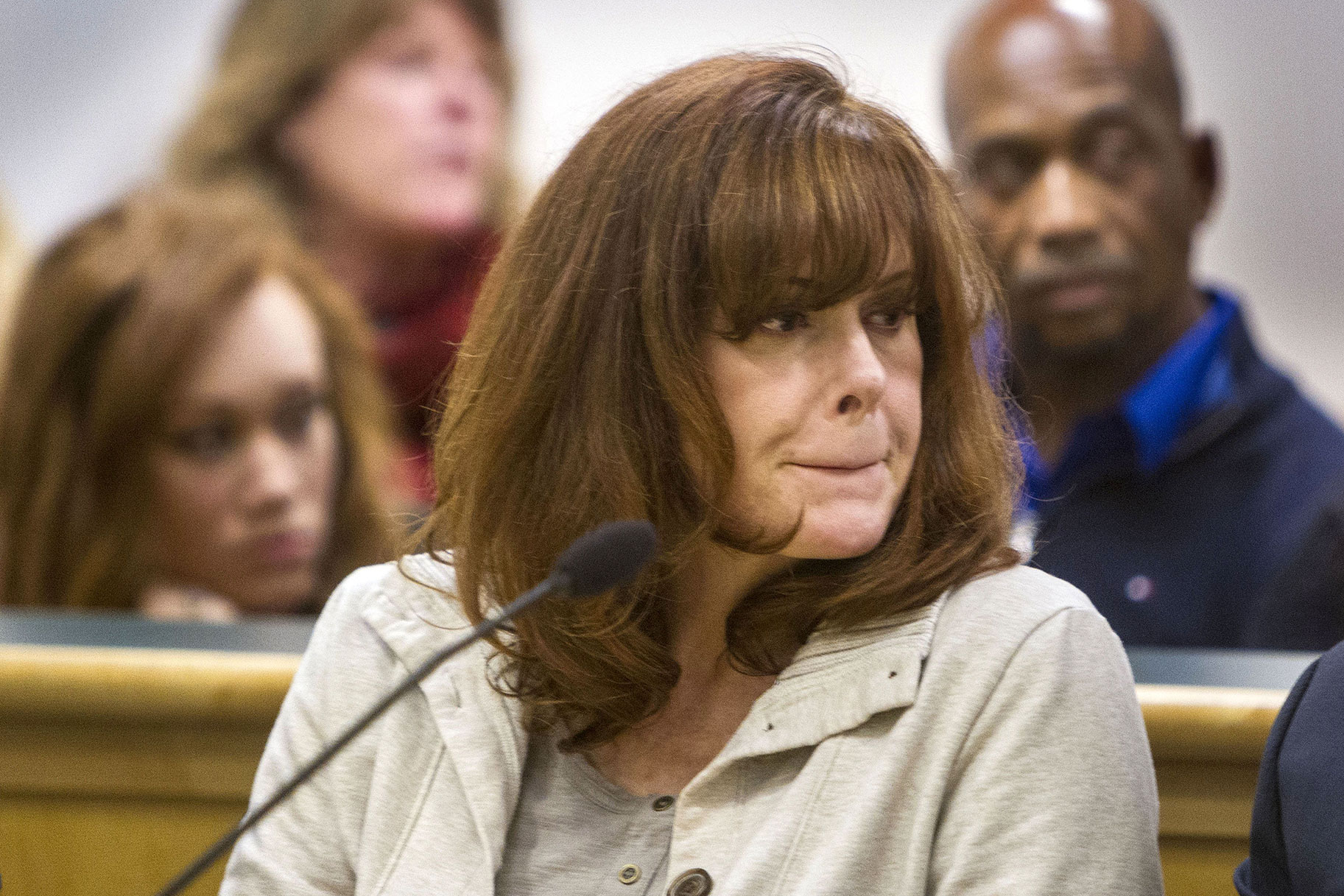
On Dec. 26, 2003, on a dead-end road on Whidbey Island in Washington state, Russel Douglas was shot dead in his 2002 Chevrolet Tracker. He was found with a bullet hole between his eyes and a 380-caliber shell casing was found in the vehicle. Investigators had few clues as to who could have killed the unassuming father of two but were curious about his estranged wife when her reaction to his death seemed muted. Their winding investigation into the murder would go on for nine years and lead from coast to coast, eventually exposing a plot that would send a former beauty queen to prison and upend the lives of several couples in the process.
The story of the Whidbey Island murder was the inspiration for veteran true-crime writer Ann Rule’s bestselling 2013 thriller, “Practice to Deceive,” and now the Lifetime movie, “Circle of Deception.” It was also the subject of a season 8 episode of Oxygen's "Killer Couples. The book and film give a true-crime account of what happened between Brenna Douglas, her friend Peggy Sue Thomas, Thomas' lover Jim Huden, and how it all ended in bloodshed and prison for two of them, even as questions about the case linger. Here’s a look at what actually happened between Thomas, Allen, and Brenna Douglas — according to them, and detectives — and where the mysterious and deadly events in 2003 led them.
(Warning: spoilers below)
Peggy Sue Thomas
Rule’s book centers heavily on the former beauty queen’s relationship with Huden, but it also gets well into the tragic family history of the former Ms. Washington. In her book, Rule delves into the murders and deaths in Thomas’s family over nearly half a century, from the 1963 murder of her father’s first wife by a teenage neighbor to the death of her sister as Thomas was awaiting trial in 2011; she lost two other family members in between.
But in the years between these tragedies, Thomas led a fascinating life. She served as an aircraft mechanic during Operation Desert Storm in the early 1990s, worked in an auto repair shop, and was married and divorced three times; she had two daughters, Taylor and Mariah, and ended up a millionaire after a divorce; and yes, she was crowned Ms. Washington in 2000 at 35.
Thomas had grown up with Huden in Whidbey Island, as she told CBS News’ Peter Van Sant for a “48 Hours” segment on the case in 2014; as a girl, she’d had a crush on him, she said. It was when she returned to their hometown for a funeral in 2002 that she reconnected with Huden — whose wife, unbeknownst to her at first, was back in the Tampa suburbs, where he’d moved in the '80s. Huden, a musician, frequently went to visit Thomas in Las Vegas, where she'd moved as their affair heated up — telling his wife he was looking at venues to book gigs.
Brenna Douglas, a close friend of Thomas, met the couple in April 2003 in Vegas — months before her husband's murder. Thomas had worked as a hairdresser at Brenna's Whidbey Island salon. Brenna had moved out on Russel and filed a restraining order against him, alleging he beat her. It was in Vegas that Brenna allegedly told Thomas her husband was "worth more to me dead than alive,” as Thomas recounted to CBS News.
It was also in Las Vegas that Thomas was arrested in 2004 for her alleged role in Russel Douglas' murder.
"I had at least three police officers with guns to my head telling me to 'Freeze! Freeze! Freeze!' And they take my car keys ... put me in handcuffs, shove me in a dark laundry room," Thomas told CBS producers, adding that they said she'd get the death penalty and that “your kids are going to watch you die.”
But with all evidence circumstantial, Thomas wasn’t charged. At least not yet.
In 2004, however, she said she heard from detectives again, after the gun used to kill Douglas was linked to Huden — and also to her — by his friend; she quickly phoned Huden afterward, she told CBS producers. After all, the couple had been visiting the area where they grew up together on the day of the murder. And, on that day, Huden had disappeared for a while — about half an hour, according to her version of events — before they left to return to Vegas. It was on this frantic call that he confessed to the killing, she said.
“He said, ‘I'm sorry I got you involved. Just know that I love you and you'll never see me again,’” Thomas recalled in the interview.
Then, Huden disappeared on her. But still, no charges related to Douglas' murder materialized.
Three years later, Thomas married Mark Allen, whose family got rich building oil pipelines, and moved to his ranch in Roswell, New Mexico; within months, the relationship started to crumble and he filed for a restraining order against her, as he told Seattle Weekly in 2011. After two years in divorce court, Thomas left with around $1 million in cash and assets, and a houseboat in New Mexico she reportedly named Off the Hook.
But in the summer of 2011, Thomas was formally charged with the murder of Russel Douglas, after authorities finally caught up with Huden in Mexico. Then, a week before she was to head to court, prosecutors offered a plea deal — a reduced charge of rendering criminal assistance, which carried a four-year sentence — and she accepted. She had to admit to helping Huden after the murder as part of the deal. Thomas spoke to CBS News about her decision, which some found surprising, as the case against her hinged on the shaky testimony of Huden’s wife.
"A person that's smart enough to realize that in this tiny little community of people who have been fed and fed and fed a story that isn't true ... that I wasn't gonna get a fair trial," she told CBS.
Thomas served her four-year sentence at the Washington Corrections Center for Women, and was released in 2016. She can’t be charged with murder in the Douglas case — even if additional evidence emerges.
Jim Huden
When he entered his affair with Thomas, Huden was a successful software developer who’d made nearly a cool million dollars after selling a program to Microsoft. In Florida, he spent his time with his wife, Jean Huden, and played with his local smooth-jazz band, Buck Naked and the Xhibitionists. He was also a survivor of childhood abuse by his stepfather, as he told his bandmate, Bill Hill, one drunken night. He also told his buddy that the abuse he'd endured had driven him to seek out and kill another abuser, Russel Douglas, as Hill told Det. Mark Plumberg of the Island County Sheriff’s Office after six months of agonizing over his friend’s sudden confession.
"He says, 'So I started lookin' for somebody that met that M.O.'" Hill told CBS News in 2014. “'I shot [Douglas].' ... He says, 'Got a gun and... shot him in the head.’”
That confession and Hill's call to Plumberg was the key break in the languishing investigation. Hill also told investigators that Huden had named Thomas and Brenna Douglas as accomplices in the murder.
As Hurricane Charlie barreled down on the west coast of Florida in August 2004, Huden saw his opportunity to flee. He’d just spoken to Thomas over the phone — confessing to her, as she says — and after confiding in his wife, split town for Veracruz, Mexico; Jean Huden later admitted to helping her husband flee and sending him money. He crossed the border on Sept. 10, 2004, as documents reveal. In Veracruz, he was known as Jim Martin; he continued to play live music while there, Jorge Mabarak, a friend and well-known jazz pianist in Mexico, told “48 Hours.”
"He loved this area. He would come here and sit for hours," Mabarak told producers, adding that they’d often play on stage together. “Everybody liked him. He liked everybody. Never had any problem. He was a blues player and a bluesman."
That ended in July 2011, eight years after the murder, when he was tracked down, arrested for first-degree murder, extradited to Washington, and held on $10 million bail. Jean Huden, it turned out, had fallen on hard times, and after an arrest in Florida for theft, forging checks, and drug charges, she decided to trade information on her husband’s whereabouts, as detectives told Seattle Weekly in 2011.
At Huden’s eight-day trial, which saw 20 witnesses take the stand, prosecutors presented the case that he and Thomas had plotted to kill Douglas, luring him to his death with a story that they had gifts for Brenna that he could bring to her. Jean Huden had told detectives that her husband and Thomas plotted and carried out the murder; she’d spoken to Thomas about it on several occasions, she said, according to the South Whidbey Record. Bill Hill, whose call to detectives blow the case open, also testified.
"It was ... a scary situation," Hill told CBS. "I could not look at him the whole time I was on the stand."
Huden, who never took the stand, was found guilty by the jury in under four hours. He was sentenced to 80 years for the murder, and is serving his sentence at the Washington State Penitentiary; it’s unlikely he will ever be released.
Huden never implicated Peggy Sue Thomas or Brenna Douglas in the murder.
Brenna Douglas
After her husband’s killing, Brenna Douglas’s supposedly cool reaction to detectives made her the prime suspect. She was also the only person of interest with an apparent motive: A potential $500,000 payout from life insurance policies that she was set to collect after her estranged husband’s death. This would be helpful in the face of mounting debt and a struggling salon.
After Douglas was slain, his widow told investigators that she and Russel had been spending time together with their two kids for the Christmas holiday. Brenna also mentioned his affairs, emotional abuse, and made allusions to past physical abuse, detectives said. She’d last seen him on Dec. 26 when he left to run some errands. There was no way for detectives to link her to the shooting, but she remained a suspect.
As the investigation continued, in January 2004, Brenna tried to collect on the insurance. However, as reported in Seattle Weekly, she hit a snag with insurer AIG as she’d been labeled an “accomplice” in her husband’s murder by prosecutor Greg Banks. This triggered Washington’s "slayer statute," which denies benefits to those involved in unnatural death. But she pushed back hard in court and eventually received a $200,000 payout — with $1,200 interest — in 2005.
“I am in no way responsible for the death of my husband,” she told the court while fighting for the payout. “I had no involvement in the murder, and there cannot possibly be a scintilla of evidence that proves otherwise, because none exists.”
But a technicality prevented her from collecting on her late husband’s $300,000 policy from Farmers Insurance; he’d failed to disclose that he’d been treated for a heart murmur. According to Rule’s book, she used the insurance money to buy an SUV and a home, which eventually fell into foreclosure.
In 2011, she left Whidbey Island for Ellensburg — about 135 miles away — for a new job. She then moved with her kids to Ferndale, Washington, according to “Practice to Deceive.” The book outlines how Brenna was one of the 20 witnesses to take the stand at Huden’s trial; speaking to Banks, she detailed her relationship with Thomas and the defendant and her trip to Las Vegas months before her husband’s death. She spoke “cautiously and with no apparent vitriol” at her husband’s killer’s trial, Rule wrote.
Brenna Douglas was never charged in her estranged husband's death, though she remained on the authorities’ radar as recently as 2014.
“She remains a suspect in my mind," Greg Banks told CBS News then. "To this day.”

